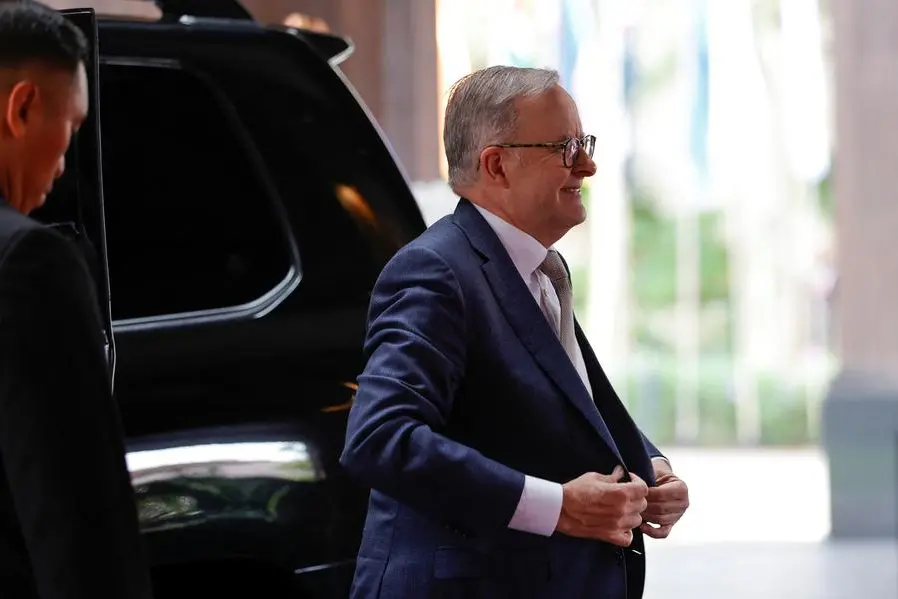PHOTO
Nusa Dua, Indonesia: China and Australia held their first formal summit in more than five years Tuesday, hoping to end years of animosity that hampered trade ties and froze top-level meetings.
"I'm very pleased we are having this meeting today," Australian Prime Minister Anthony Albanese said at the start of a meeting with President Xi Jinping on the margins of the G20 meeting in Bali, Indonesia.
"We have had our differences," he acknowledged.
Canberra has tried to lower expectations that the talks will fix relations, framing the face-to-face meeting as a victory in itself.
Australian and Chinese leaders had a brief exchange at the 2019 G20 summit in Japan, but have not had a formal sitdown in more than half a decade.
China has been angered by Australia's willingness to legislate against overseas influence operations, to bar Huawei from 5G contracts and to call for an independent investigation into the origins of the coronavirus pandemic.
In recent years, Beijing has levied punitive sanctions on Australian goods, frozen ministerial contacts and plunged relations into the most serious crisis since the Tiananmen Square crackdown in 1989.
Australian products from barley and coal to wine, beef and even infant formula have all been subject to Chinese sanctions.
Albanese insisted Australia would defend its values even as he welcomed the chance to talk.
"Our bilateral relationship is an important one," he said.
The two countries have also vied for influence in the South Pacific, where China has doled out cash and sought to build influence in small but strategically located island states.
The United States and Australia suspect China of trying to establish a military presence in the South Pacific, something that would up-end the military balance in the region.
Canberra reacted with thinly veiled panic when it was revealed China had inked a secretive security deal with the Solomon Islands that allowed the deployment of Chinese security personnel.
Solomons Prime Minister Manasseh Sogavare last month told AFP he would "not allow" the establishment of a foreign military base.
© Agence France-Presse





















